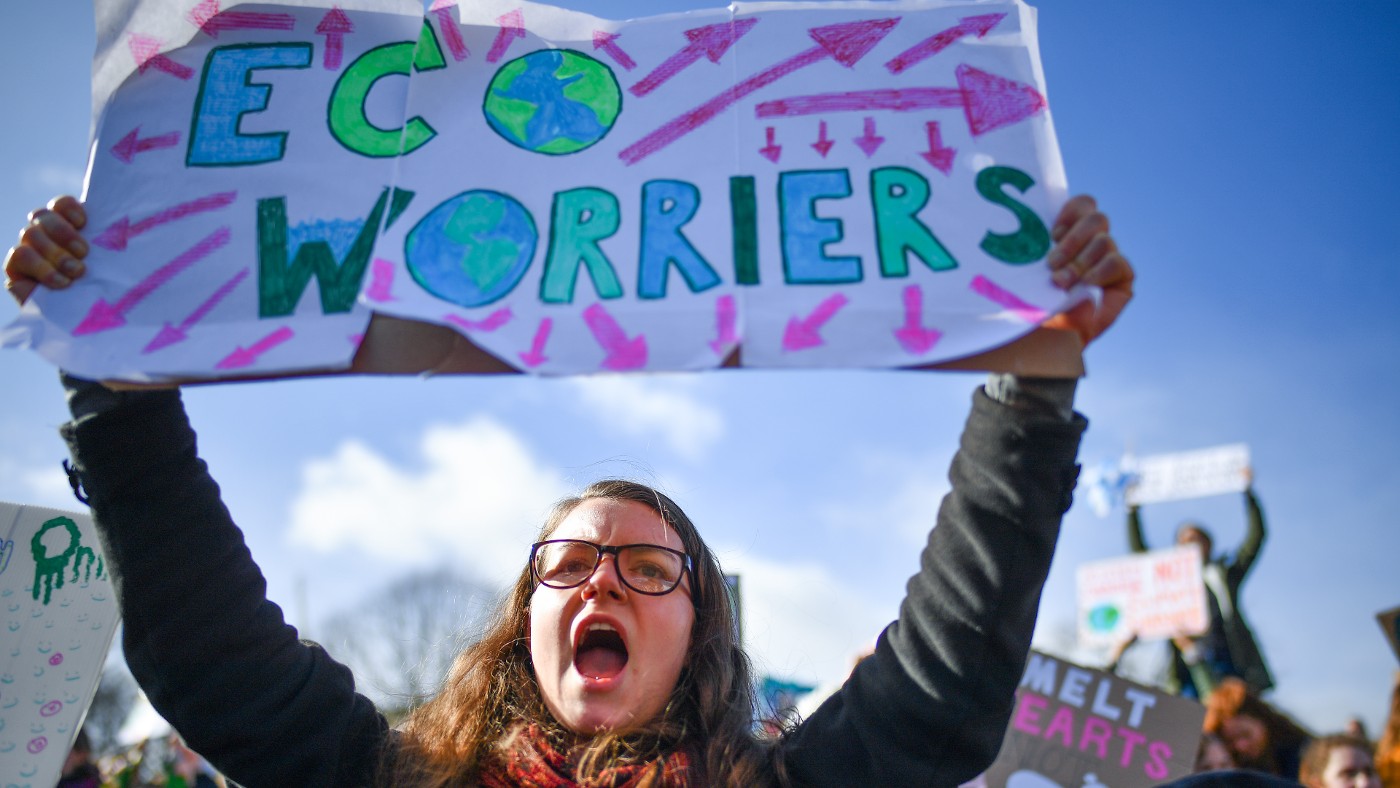Should we be more positive about tackling climate change?
Catastrophists urged to bring more ‘hope’ and ‘joy’ to conversations about the environment

A free daily email with the biggest news stories of the day – and the best features from TheWeek.com
You are now subscribed
Your newsletter sign-up was successful
The world still has “multiple, feasible and effective options” to avoid the worst consequences of climate breakdown, according to a landmark new report.
This “positive framing” in the “otherwise grim” synthesis report from the Intergovernmental Panel on Climate Change (IPCC) is a “counterblast” to the “many voices” dismissing hopes of limiting global warming to 1.5C, said The Guardian’s environment editor Fiona Harvey.
The IPCC’s more upbeat take follows the publication of a think-tank report warning that the world was at risk of descending into a climate “doom loop”. Researchers from the Institute for Public Policy Research and Chatham House argued that “the consequences of the crisis draw focus and resources from tackling its causes”, which leads to “higher temperatures and ecological loss, which then create more severe consequences, diverting even more attention and resources”.
The Week
Escape your echo chamber. Get the facts behind the news, plus analysis from multiple perspectives.

Sign up for The Week's Free Newsletters
From our morning news briefing to a weekly Good News Newsletter, get the best of The Week delivered directly to your inbox.
From our morning news briefing to a weekly Good News Newsletter, get the best of The Week delivered directly to your inbox.
What did the papers say?
The climate crisis “a disaster on a more immense scale than anything our species has faced”, said writer and activist Rebecca Solnit in The Washington Post. But “we can and must summon what people facing disasters have: a sense of meaning, of deep connection and generosity, of being truly alive in the face of uncertainty”.
We need a large-scale change in perspective” to “reframe” climate change as an “opportunity” to “rethink who we are and what we desire”, wrote Solnit, the co-editor of Not Too Late: Changing the Climate Story From Despair to Possibility.
Solnit’s call signals the advent of an “age of climate optimism”, wrote Kyle Paoletta for Harper’s magazine. A “new mode” of environmental reporting has “bloomed”, said Paoletta, who pointed to The Washington Post’s Climate Solutions vertical, an initiative designed to highlight people and organisations “offering hope for the future” and to show readers “how they can make a difference”. The newspaper has also launched Climate Coach, an advice column “about the environmental choices we face in our daily lives”.
The New York Times’s Nicholas Kristof has urged his readers to “cheer up”, because “the world is better off than you think”. With global solar power capacity forecast to nearly triple in five years, a breakthrough in the development of nuclear fusion, and progress in battery storage, Kristof argued, “we are in the midst of a revolution of renewables”.
A free daily email with the biggest news stories of the day – and the best features from TheWeek.com
Data scientist Hannah Ritchie also listed “reasons to be optimistic about the future”, in an article for Vox. Global deforestation “peaked decades ago”, sales of new gas and diesel cars are “falling” and coal is “starting to die in many countries”, wrote Ritchie, the lead researcher for Our World in Data.
And although “people might defend doomsday scenarios as the wake-up call that society needs”, she argued, “scaring people into action doesn’t work”.
Maybe, said Violet Lucca in Harper’s, but just as catastrophism “can be paralysing”, “sweeping optimism” can “erode” people’s trust in the media, as “they experience the whiplash of moving from the doomsday to the sanguine with little explanation”.
What next?
The IPCC’s “message of action rather than despair” was echoed by UN Secretary-General António Guterres, said Harvey in The Guardian. Guterres called for all of the G20, the world’s biggest developed and developing countries, to bring forward their commitments on reaching net zero greenhouse gas emissions, from 2050 to “as close as possible to 2040”.
Two co-authors of the IPCC’s report warned in an article on The Conversation that “solutions aren’t being deployed fast enough”. Along with “pushback from industries, people’s fear of change has helped maintain the status quo”, wrote professors Robert Lempert, of California’s Pardee Rand Graduate School, and Elisabeth Gilmore, of Canada’s Carleton University.
Will Turner, a scientist at Conservation International, told Conservation.org, that the findings in the IPCC report were of “jaw-dropping significance” and that global leaders must act fast. “The most important actions are not in 2050 or 2030, but in 2023,” he said.
Amid the calls for action, said Paoletta in Harper’s, “the media’s job, in this moment, is not to raise alarms or offer assurances”. Rather, “it is to document the ongoing mutilation of our planet, and to push citizens, politicians, and corporations to stanch the carnage”.
Chas Newkey-Burden has been part of The Week Digital team for more than a decade and a journalist for 25 years, starting out on the irreverent football weekly 90 Minutes, before moving to lifestyle magazines Loaded and Attitude. He was a columnist for The Big Issue and landed a world exclusive with David Beckham that became the weekly magazine’s bestselling issue. He now writes regularly for The Guardian, The Telegraph, The Independent, Metro, FourFourTwo and the i new site. He is also the author of a number of non-fiction books.